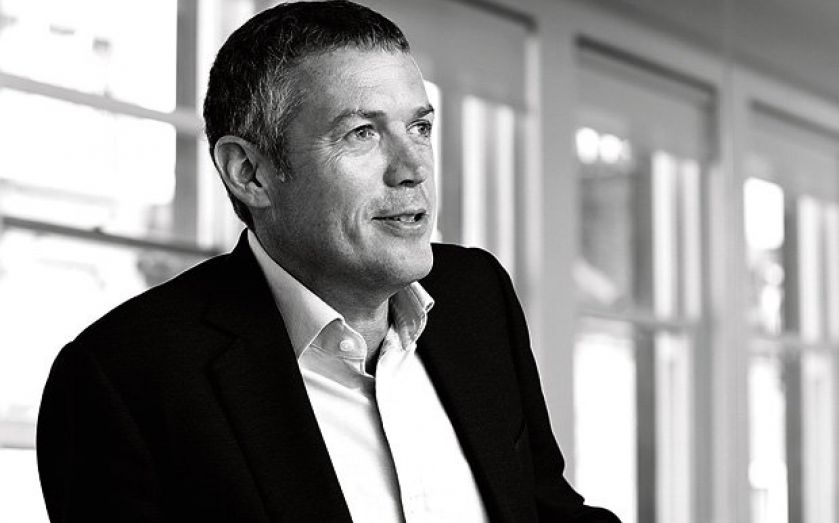Brutal simplicity

Liam Ward-Proud talks to M&C Saatchi worldwide chief executive Moray MacLennan
BORN of an unhappy schism at Saatchi & Saatchi (brothers Maurice and Charles were forced out by the board in 1995), M&C Saatchi has since overtaken its near-namesake in the agency pecking order. UK billings were down 7 per cent in 2013 to £188m (still easily beating Saatchi & Saatchi’s £117m), but chief executive Moray MacLennan is betting that M&C Saatchi’s global network of partnerships, a “federation of entrepreneurs”, can see it mount a challenge to the industry behemoths. He talks to City A.M. about keeping things simple, and how to make sense of the recent flurry of dealmaking in media.
Your tagline is “brutal simplicity of thought”. What does this mean?
In life, it’s far easier to complicate than it is to simplify. It’s a Bertrand Russell quote: therefore, what is required is the “painful necessity of thought” to distil everything down to its essence. It’s become even more relevant as the media landscape has evolved in complexity . You only have to look at surveys of chief marketing officers to see that they desire simplicity and clarity in communications.
That’s not to say the execution can’t be gentle, or beautiful. The communications themselves aren’t brutal, but the thinking behind them has to be. It needs that ruthlessness about it to get to the heart of what is needed.
Is it a challenge to maintain a group-wide philosophy given M&C Saatchi’s relatively dispersed global structure?
When we say a “federation of entrepreneurs”, it’s important to point out that these agencies are majority-owned by us. But because the local partners and managers also have ownership of their business, it turns them from managers into entrepreneurs.
It’s entirely desirable, and encouraged, that they forge their own way. They’ve often joined us to escape the tyranny of the mega-conglomerates, where everything is jelly moulded. But one thing we do demand is that they adhere to, live, breathe, recruit and practice “brutal simplicity of thought.”
We’re seeing an enormous amount of merger and acquisition activity among media companies. Have you seen any discernible trends around how the industry is being re-shaped?
I’d say it’s two-fold. There’s a feeding frenzy around data, and another feeding frenzy around content. We’re seeing data and tech firms buying content companies, and content companies trying to buy data, technical or telecoms companies. It’s happening across the sector, whether it’s BT or WPP.
I think there’s also a desire not to get left behind among some firms. They know the vague direction of travel for the industry, and they don’t want to leave a box marked “future” un-ticked. Things are changing so fast, people want to make sure they’ve got all the bases covered. But they can often buy things to try and cheat time – if you buy a company a week, people don’t notice the lack of organic growth.
You’ve been less frenetic than some of your counterparts in terms of acquisitions, what has the future got in store?
We will continue to acquire. But we’re well aware that it’s more important to have good people than lots of people. Our basic model is to “start up” wherever possible, rather than constantly acquiring. But we will be looking to strengthen in the future.
Ours are relative small acquisitions compared to the giant multinationals. But it’s more difficult to buy small companies than big ones. With large acquisitions, you tend to be buying assets, or big client relationships. But small ones are about talent. If they’re selling purely in order to make money, you’re going to be left with nothing pretty quickly. We’re not looking for someone who’s trying to sell for financial reasons, we’re looking for someone who wants to sign up, and use our brand to grow.
Of all the campaigns you’ve worked on, which one sticks out the most?
In your early days, the industry can seem very mystical, and there was something quite special about working on my first ever political campaign – Margaret Thatcher’s final election in 1987. There were many stories, not least being shouted at by Thatcher herself, and meeting all the political heavyweights. We were creating ads that were not just judged to be excellent pieces of communication, but also went on to shape the country – that was fun.
@LiamWardProud